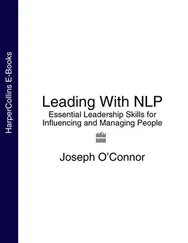John Gray - Children Are from Heaven - Positive Parenting Skills for Raising Cooperative, Confident, and Compassionate Children
Здесь есть возможность читать онлайн «John Gray - Children Are from Heaven - Positive Parenting Skills for Raising Cooperative, Confident, and Compassionate Children» весь текст электронной книги совершенно бесплатно (целиком полную версию без сокращений). В некоторых случаях можно слушать аудио, скачать через торрент в формате fb2 и присутствует краткое содержание. Год выпуска: 1999, ISBN: 1999, Издательство: HarperCollins e-books, Жанр: psy_childs, sci_pedagogy, Психология, на английском языке. Описание произведения, (предисловие) а так же отзывы посетителей доступны на портале библиотеки ЛибКат.
- Название:Children Are from Heaven: Positive Parenting Skills for Raising Cooperative, Confident, and Compassionate Children
- Автор:
- Издательство:HarperCollins e-books
- Жанр:
- Год:1999
- ISBN:978-0-06-133886-1
- Рейтинг книги:4 / 5. Голосов: 1
-
Избранное:Добавить в избранное
- Отзывы:
-
Ваша оценка:
- 80
- 1
- 2
- 3
- 4
- 5
Children Are from Heaven: Positive Parenting Skills for Raising Cooperative, Confident, and Compassionate Children: краткое содержание, описание и аннотация
Предлагаем к чтению аннотацию, описание, краткое содержание или предисловие (зависит от того, что написал сам автор книги «Children Are from Heaven: Positive Parenting Skills for Raising Cooperative, Confident, and Compassionate Children»). Если вы не нашли необходимую информацию о книге — напишите в комментариях, мы постараемся отыскать её.
Children Are from Heaven: Positive Parenting Skills for Raising Cooperative, Confident, and Compassionate Children — читать онлайн бесплатно полную книгу (весь текст) целиком
Ниже представлен текст книги, разбитый по страницам. Система сохранения места последней прочитанной страницы, позволяет с удобством читать онлайн бесплатно книгу «Children Are from Heaven: Positive Parenting Skills for Raising Cooperative, Confident, and Compassionate Children», без необходимости каждый раз заново искать на чём Вы остановились. Поставьте закладку, и сможете в любой момент перейти на страницу, на которой закончили чтение.
Интервал:
Закладка:
ADJUSTING YOUR WILL VERSUS CAVING IN
Adjusting your will to give children what they want is not a great crime. It gives a clear and healthy message that parents listen and learn, and it demonstrates healthy respect and flexibility. Adjusting your will becomes caving in when your motive is to avoid confrontation. It is not healthy to cave in to your child’s demands.
Caving in will spoil children and make them more demanding. Remember, it is not giving children more that spoils them; it is giving them more to avoid confrontation. Children need to experience again and again that the parent is the boss.
Children become spoiled when parents let them be boss.
Spoiled children have disconnected from feeling their need for the parent to be the boss.
It is not giving children more that spoils
them; it is giving them more to avoid
confrontation.
When children don’t get enough time outs, they become prone to more intense tantrums. This means that when the child finally gets a time out, he or she will throw an even bigger tantrum. Eventually, with regular time outs, the child will come back into balance and be more cooperative rather than demanding. If you have caved in and spoiled your children, they can become unspoiled again by giving more time outs. Children are never really spoiled, just out of control.
After a while, you will easily sense when your child just needs a good cry. Crying is one of the most effective ways to release stress and feel better again. When you experience a great loss, grieving is an essential part of finding acceptance again. When our children experience their disappointments and losses, though these traumas may seem small to us, they are big to children. Children also have a need to cry or grieve as a way to accept the limits and boundaries of the world.
Sometimes a child just needs a good cry
to feel better.
Some parents mistakenly assume that they are hurting their children because their children will cry. Without the insights of positive parenting, they mistakenly conclude that it is too cruel a measure. This same parent will often turn around and spank, yell, or punish a child when nothing else works.
A time out for a few short minutes does not hurt a child, but it does help to bring up the accumulated feelings that are right under the surface. A time out brings up the painful emotions that need to be felt in order to be released.
Although children never like taking time outs, they need to have good cry and come back into balance.
WHEN TO GIVE TIME OUT
Whenever you threaten to give a time out, you are using it as threat of punishment. Instead of threatening to give a time out, a parent should just give them. The best time for giving a time out is after a child has had the opportunity to respond to your commands. If, after you have repeated a command a few times, the child continues to resist, then he or she needs a time out. The time out is not given as a punishment, but because the child needs it. Even though the child may consider the time out a punishment, as long as you don’t use time out as a punishment, it isn’t a punishment.
If you warn children that if they continue to resist they will need a time out, you are still using time out to threaten children into obedience rather than using your rewards and commands to motivate cooperation. This fear-based approach only weakens your ability to command your children in the future.
THREE STRIKES AND YOU ARE OUT
After the age of nine, this circumstance changes. Children are now more capable of containing their feelings and don’t need time outs as much. They have learned to feel their emotions and let go of them. In this case, the child is given the opportunity to find within herself the ability to come back into control.
Children get three strikes, and then take a time out.
When a child is resisting and not responding to a command, the parent can simply say, “That’s strike one.” Strike one is a code that means that if she can pull herself together on her own and cooperate again, then she doesn’t need a time out. If within a few minutes she continues to resist, the parent says, “Strike two.” This means the child has one more chance to cooperate. If within a few more minutes the child continues to resist, then the parents say, “Strike three,” and the child takes a time out.
After explaining this to a nine year old, you can create your own code. You may wish to pull on your earlobe instead of saying “strike one” or you may just simply hold up one finger, two fingers, and then three fingers. Once you begin to use this approach, you need to be consistent. Before getting a time out, your children will expect to get their signals, which is good. Learning to pull ourselves together without having to suppress our feelings is an important skill. For children to pull it together, they need a few tries or strikes.
WHEN TIME OUT DOESN’T WORK
Some parents complain at workshops, “Time outs don’t work for my teenager. I can’t even get him to do it. He just laughs and walks off. I have to take something away to punish him.” This is just another example of the defiance teenagers today feel in response to all the punishment of the past. Fortunately, after years of using fear to motivate children, you can begin using the five steps of positive parenting and the five messages. They will begin to work immediately.
In this example, the parent needs to begin with the first four skills instead of just using time outs as another way to punish. Giving time outs work — when used together with the other four skills. Within a short period of time, your teenager will be much more cooperative. Time outs are most effective for young children. Learning to listen without giving advice and using rewards to motivate are much more effective skills to use with teenagers.
Time outs work by creating an opportunity for a child to resist. Some children are so disconnected from their inner desire to please that at first they don’t resist a time out. They are happy to take a time out and would prefer being alone to being with their parents. These children have disconnected from their desire to please or be guided. Some children just give up trying to please their parents or feel so controlled and manipulated that they don’t want their guidance either.
They don’t mind being alone and like showing their defiance in this way. Often, when children resent their parents, they happily go to their rooms to show they don’t care.
In this example, parents need to look at steps one, two, and three (see list below) to nurture their child back to feeling a desire to please and cooperate. Then this child would respond differently to time outs and benefit more from them. Even though the child appears to be happy, he or she is still being put in a situation beyond his or her control and is thus back in your control. If a child likes going to his or her room, use another room where he or she can’t play with their games, toys, stereo, or talk on the phone.
It would be fine to send children to their room to play a game, but that would not be a time out. If they resist taking time outs, then it is fine for them to use their games or toys during their time out. If they are happy about time outs, then put them in the bathroom or another room.
WHAT MAKES THE FIVE SKILLS WORK
The five skills of positive parenting work today because the world is a different place and so are our children. In a free society, we must adapt our parenting approach. In summary these skills are:
1.To create cooperation, ask don’t order.
Читать дальшеИнтервал:
Закладка:
Похожие книги на «Children Are from Heaven: Positive Parenting Skills for Raising Cooperative, Confident, and Compassionate Children»
Представляем Вашему вниманию похожие книги на «Children Are from Heaven: Positive Parenting Skills for Raising Cooperative, Confident, and Compassionate Children» списком для выбора. Мы отобрали схожую по названию и смыслу литературу в надежде предоставить читателям больше вариантов отыскать новые, интересные, ещё непрочитанные произведения.
Обсуждение, отзывы о книге «Children Are from Heaven: Positive Parenting Skills for Raising Cooperative, Confident, and Compassionate Children» и просто собственные мнения читателей. Оставьте ваши комментарии, напишите, что Вы думаете о произведении, его смысле или главных героях. Укажите что конкретно понравилось, а что нет, и почему Вы так считаете.












